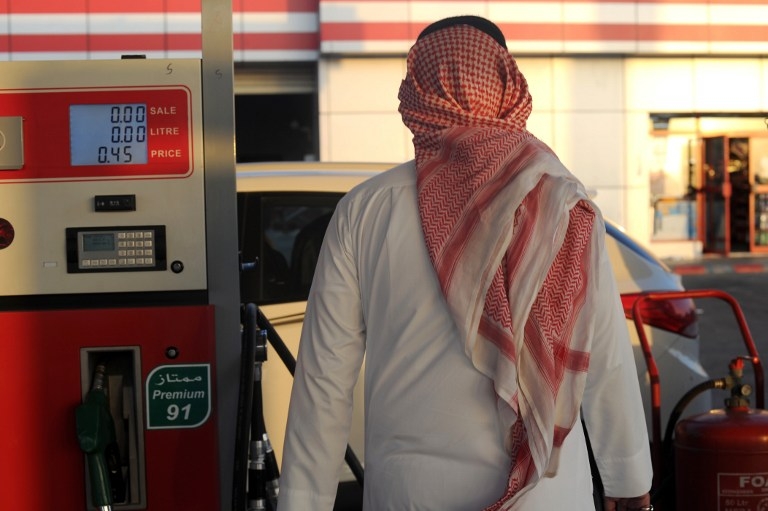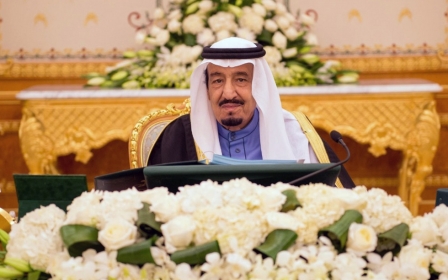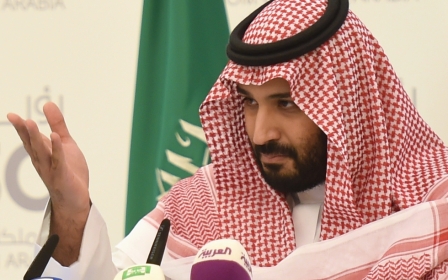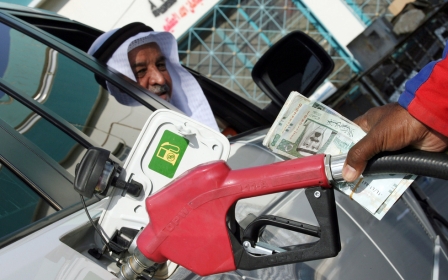Saudi faces harsh financial cuts amid $53bn budget deficit

"Tough measures" including subsidy cuts have been implemented in Saudi Arabia as the kingdom seeks to balance the books by 2020, the Arab News reported.
Riyadh projects a 2017 budget deficit of $53 billion, a drop of almost half from a record shortfall reported last year after the world's top oil exporter was hit by falling crude prices.
According to a cabinet statement, next year's budget projects spending of 890 billion riyals ($237 billion) and revenues of 692 billion riyals.
In the past few months, the world's biggest oil exporter has taken drastic steps to save money. These included freezing major building projects, slashing the salaries of ministers and Shura Council members by 20 and 15 percent in September, and scaling back financial perks for public sector employees in the wake of last year's record deficit, which reached $97bn (93 billion euros).
In October, Saudi Arabia sacked its veteran finance minister as it planned for major economic restructuring. Back in May, the long-serving oil minister was also replaced as part of the major government overhaul.
Under targets to be met by 2020, the government aims to cut the share of public wages in the budget from 45 percent to 40 percent, decreasing the total cost of state salaries from 480 billion to 456 billion riyals ($128bn to $122bn).
Last week, King Salman admitted that Saudi Arabia was enduring "painful" economic reforms but said they were necessary to “protect the country from worse problems”.
"The state has sought to deal with these changes... through a variety of measures to restructure the economy, some of which may be painful in the short run but ultimately aim to protect the economy of your country from worse problems," he told the consultative Shura Council last Wednesday.
Analysts say that Riyadh's deficit of 15 percent of GDP is one of the largest among emerging markets.
Sources cited by Arab News said the budget is expected to cut costly utilities subsidies for the second consecutive year, while Bloomberg News said another increase in fuel prices was also under consideration.
Cuts to fuel subsidies
The government made unprecedented cuts to fuel and utilities subsidies last year in a country long accustomed to some of the cheapest petrol prices in the world.
A year of cutbacks left retailers complaining of lower sales and residents said they had less money to spend.
"Given the opaqueness of policy announcements, the budget will provide investors with an opportunity to gauge the government's commitment to fiscal austerity," London-based Capital Economics wrote in a pre-budget briefing.
Oil prices, which were above $100 a barrel in 2014, tanked below $40 in 2016 but recovered toward the end of this year and traded on Thursday below $55.
The plunge in global oil prices impelled Riyadh to intensify economic reform efforts, which are being led by King Salman's son, Deputy Crown Prince Mohammed bin Salman, 31.
In April the prince released the Vision 2030 programme for diversifying the oil-dependent economy.
At its heart is a plan to float less than five percent of state oil giant Saudi Aramco on the stock market, with the proceeds helping to form what will be the world's largest state investment fund, holding about $2tn in assets.
The IPO could take place in 2018 and would be the biggest in history.
Over five years the plan targets 200 billion riyals in savings through cuts to water and electricity subsidies.
New MEE newsletter: Jerusalem Dispatch
Sign up to get the latest insights and analysis on Israel-Palestine, alongside Turkey Unpacked and other MEE newsletters
Middle East Eye delivers independent and unrivalled coverage and analysis of the Middle East, North Africa and beyond. To learn more about republishing this content and the associated fees, please fill out this form. More about MEE can be found here.




